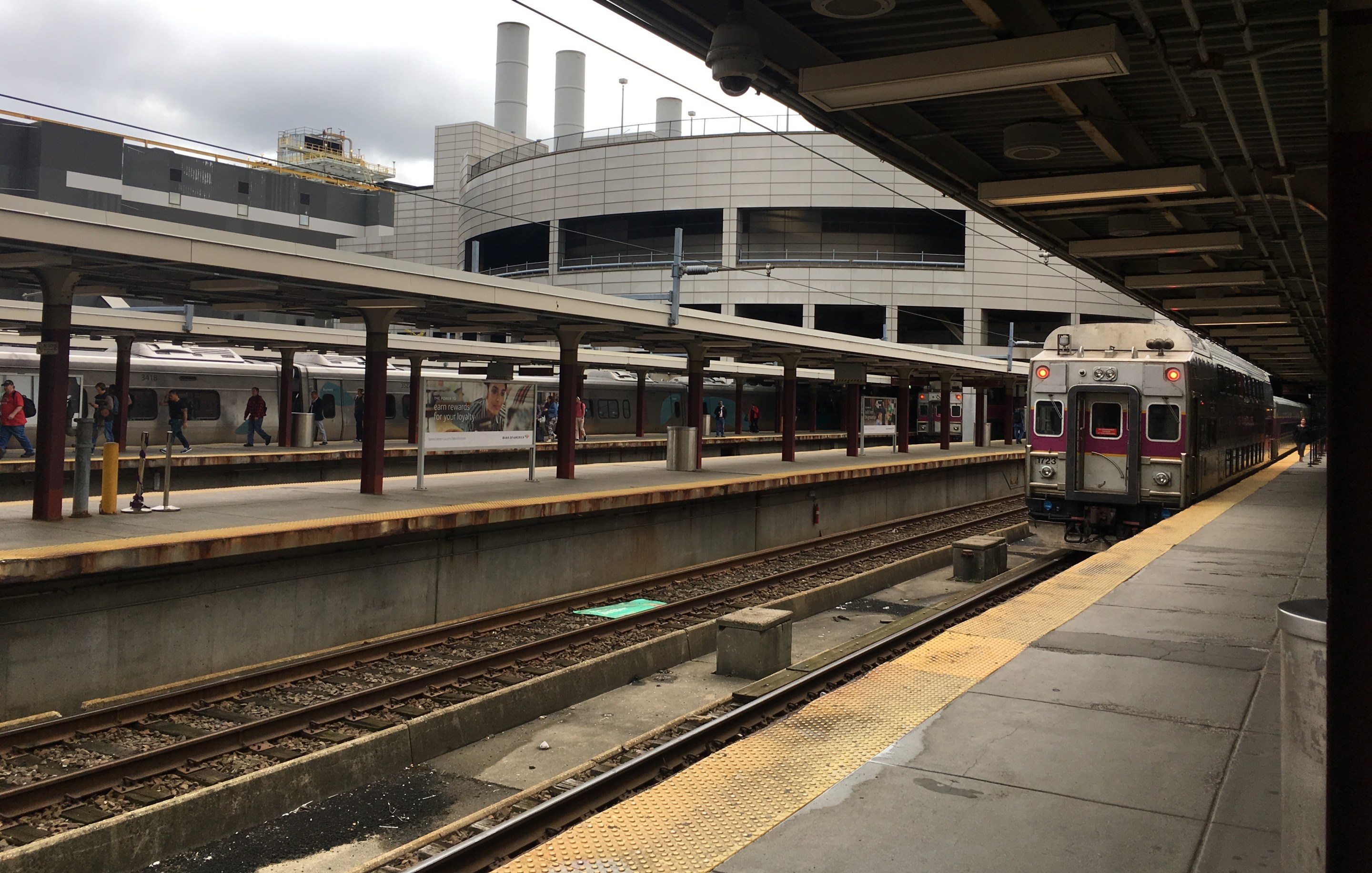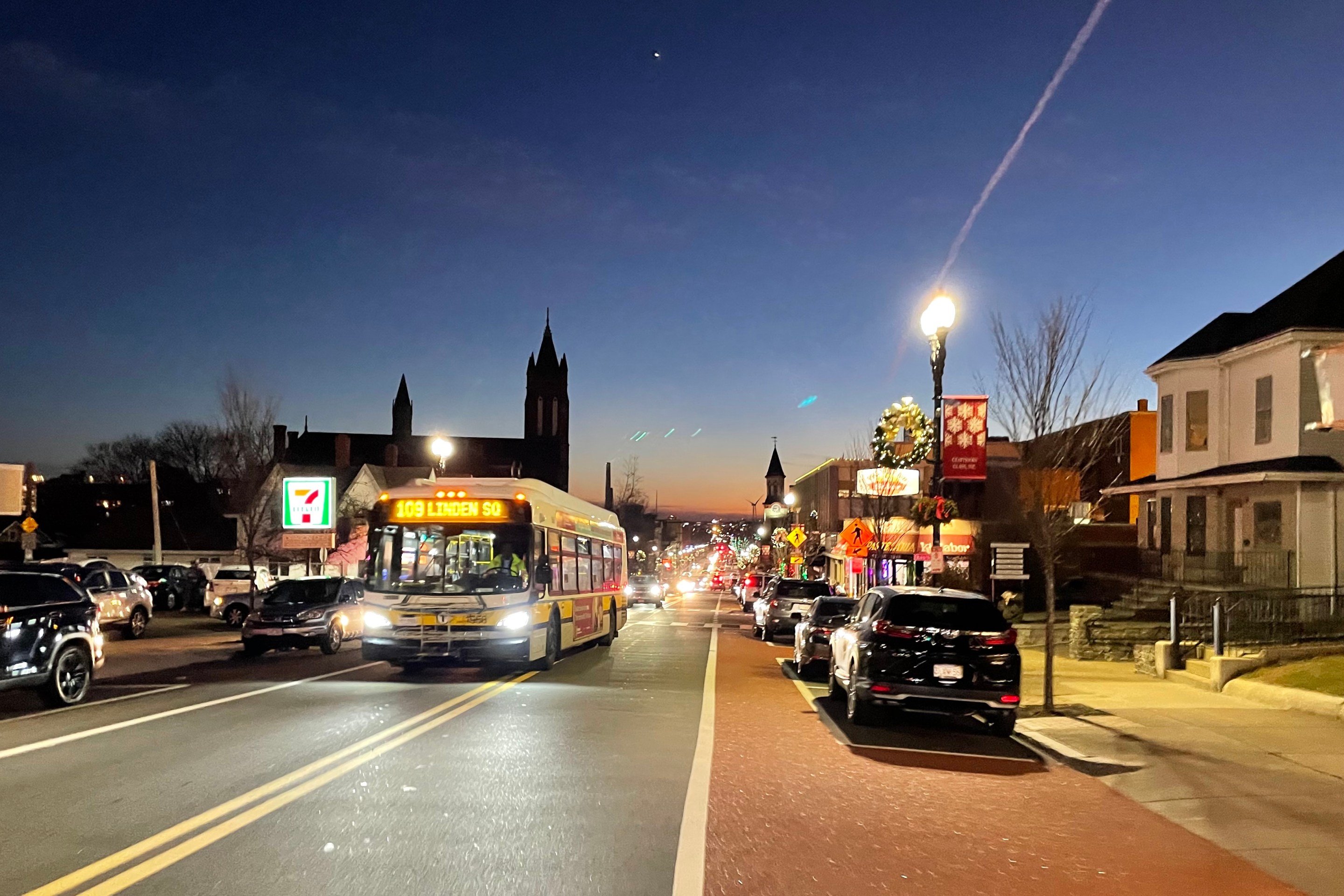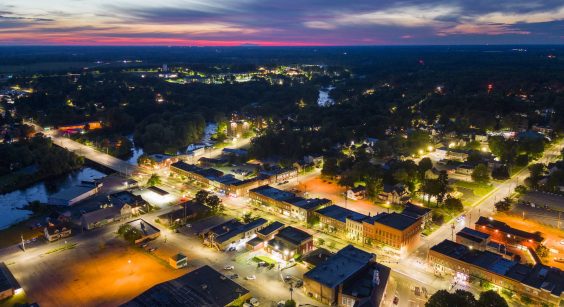Advocates from TransitMatters are asking the state to cancel a multi-billion-dollar expansion plan for South Station, arguing that instead of building more platforms to support expanded service, the MBTA could instead make cheap organizational changes to move more trains more quickly in and out of the station – strategies that would also improve speed and reliability for riders.
Those ideas came with a detailed plan to implement faster, higher-frequency service on the MBTA's Worcester commuter rail line in a "proof on concept" report that TransitMatters released on Thursday.
The concept lays out an incremental strategy to improve frequency and operating speeds between Boston's South Station and Worcester, a route where ridership demand is expected to increase dramatically over the next decade thanks to disruptive construction projects on the Massachusetts Turnpike.
Through organizational improvements that will reduce the amount of time trains spend at each stop, the group estimates that the Worcester Line could attain 60-minute service that reliably arrives at each station on every hour. With additional, low-cost track upgrades in the crowded approach to South Station, the line could reduce its travel time in and out of the terminal enough to achieve 30-minute frequencies.
Applied to the other commuter rail lines that use South Station, these organizational improvements and track upgrades would dramatically increase the station's capacity, and obviate the need for the state's multi-billion station expansion proposal, according to TransitMatters.
"The good news about this is if we do the switches and other operational changes, that can be done without shutting down the station for a huge construction project, and at a tiny fraction of the cost of expanding the station. Instead of currently operating with 20 trains per hour, (South Station) could do 60 trains per hour," said Jarred Johnson, Chief Operating Officer of TransitMatters, at a presentation of the concept plan on Thursday afternoon.
In the longer term, TransitMatters argues that the Worcester Line should be an early candidate for electrification, to allow new "electric multiple unit" (EMU) trains that could accelerate faster between stops and have dramatically fewer maintenance issues than the existing diesel fleet.

Adding overhead wires to the Worcester Line and buying new EMU vehicles would be a considerable investment, but TransitMatters argues that it would be cheaper, and create much wider benefits to riders, than expanding South Station to accommodate more platforms for slower diesel trains.
“The biggest statement of this report is that South Station expansion is complete unnecessary, and its $2 to $3 billion cost could pay for an all-new electric fleet,” said TransitMatters President Josh Fairchild at Thursday's event.
The "Proof of Concept" report for the Worcester line is full of other detailed technical recommendations – including an argument for the MBTA to stop buying double-decker rail cars (the stairs increase dwell times at every stop, and reduce the number of doors that passengers can use in each train), and a proposal to assign specific platforms at South Station to specific rail lines, so that passengers will always know where their train will be.
The new report is a follow-up to a white paper TransitMatters released last year titled "Regional Rail for Greater Boston," which sketched a system-wide vision for faster, more frequent service on the entire commuter rail network.
The MBTA is undergoing its own evaluation of the commuter rail system in its "Rail Vision" study, which is currently evaluating six different alternatives, including an one named "full transformation" that is similar to the vision laid out by TransitMatters.
“We’re hoping you can push them and steer them towards that option," said Johnson. "Now we have some questions to raise about some of their cost estimates, but we’re really excited that MassDOT is going through this process, and we hope they’ll arrive at that 'full transformation' option. When you look at the social equity benefits, congestion relief, and climate benefits, it’s clear that that’s the only option.”
Read the report: Regional Rail Proof of Concept






